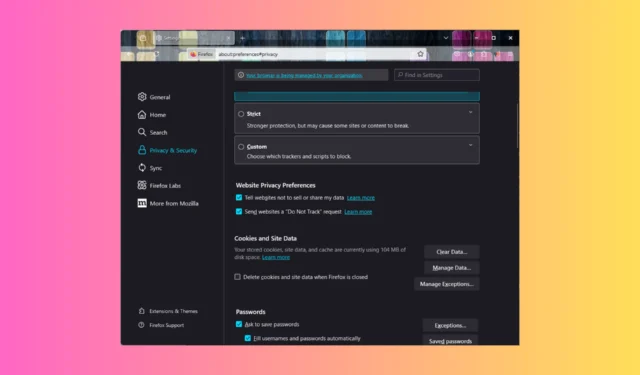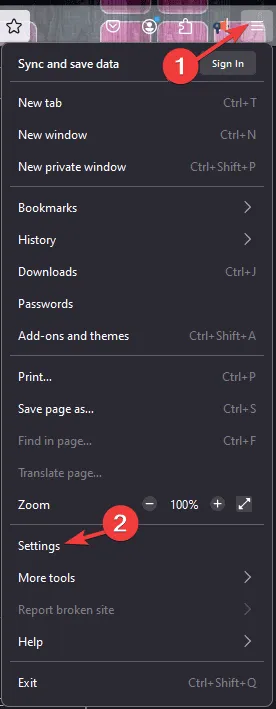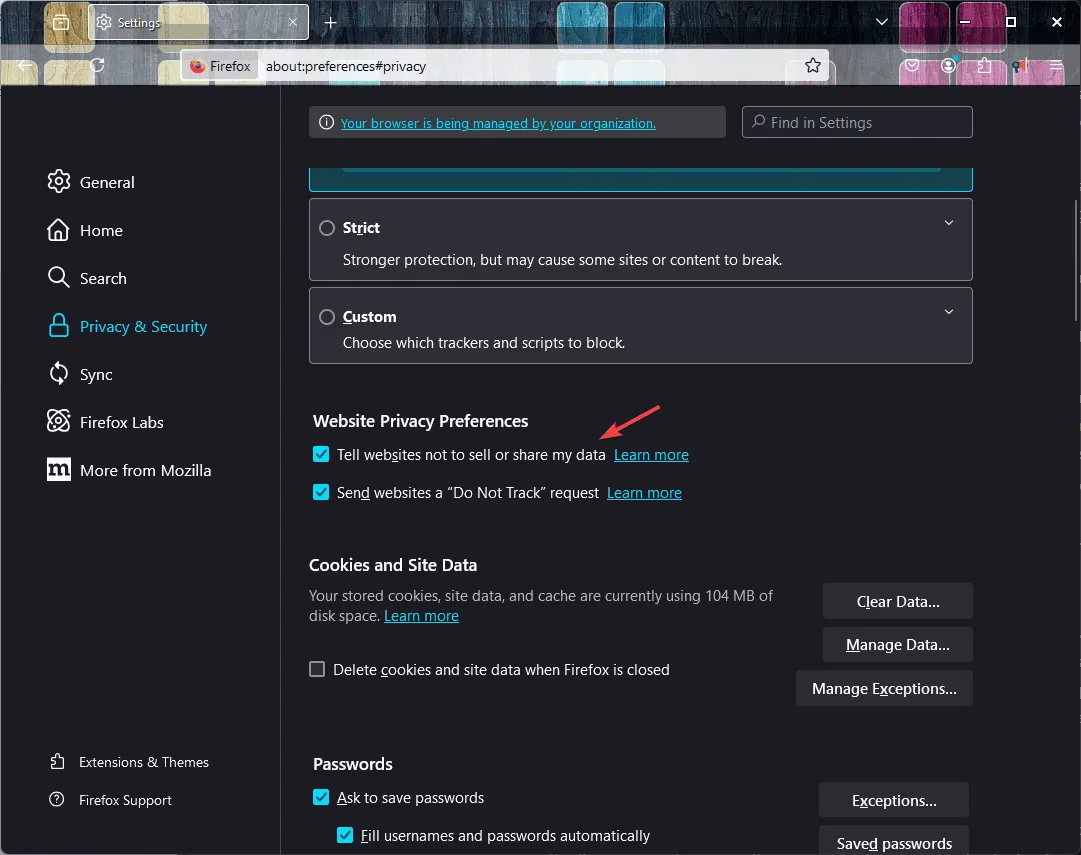Understanding Global Privacy Control Feature in Firefox

With the rising occurrences of data breaches, concerns surrounding personal data protection have intensified, establishing it as a top priority for internet users. To address this demand for enhanced privacy, browsers like Firefox have rolled out features such as Global Privacy Control (GPC).
What is Global Privacy Control in Firefox?
With the release of version 120, Mozilla Firefox introduced Global Privacy Control (GPC), designed to bolster your privacy by allowing you to inform websites that you wish to opt-out of having your browsing session data sold or shared.
GPC functions as a Do Not Sell mechanism in several US states, including Colorado, California, and Connecticut. Additionally, it can signal an opt-out from targeted advertising or a general request to limit the sharing or selling of your data.
When activated, GPC sends a notification to the websites you visit, expressing your privacy preferences. This feature aims to provide users with greater control over their data and the way companies utilize your information online.
The notification is transmitted through a specific HTTP header labeled DNT: 1 (Do Not Track), which forms a part of Firefox’s web request.
How can I enable Global Privacy Control?
- Open Firefox on your computer.
- In the top right corner, find the Menu (three-horizontal line) button, and from the dropdown menu, choose Settings.

- Go to the Privacy and Security panel, locate Website Privacy Preferences, and select the Tell websites not to sell or share my data option.

- Close the Settings to apply the changes.
What are the benefits of using the GPC feature?
- Enhanced Privacy – Prevents businesses from using your information for targeted advertising and data collection.
- Global Privacy Preferences – No need to set privacy settings individually for every website visits; simply enable GPC and you’re good to go.
- Increased Transparency – GPC fosters transparency and enhances data handling practices through adherence to user consent.
- Sense of Control – Users can manage what information can be used by companies, thereby decreasing the chances of data misuse.
- Regulatory Compliance – GPC aligns with the California Consumer Privacy Act (CCPA) and the General Data Protection Regulation (GDPR) in Europe, thereby reinforcing these regulations.
Global Privacy Control, or GPC, empowers you to establish global privacy preferences that are communicated to the websites you visit, ensuring your data is handled appropriately.
Websites that respect the GPC signals will refrain from tracking your data for selling or sharing purposes. However, it’s essential to recognize that not all websites can interpret or respond to GPC signals, and consequently, the effectiveness may vary based on the privacy practices of each site.
In conclusion, GPC is a promising initiative; however, it appears to be just a preliminary step in the ongoing journey toward more advanced privacy solutions.
If your Firefox is unresponsive on your Windows 10 or 11 machine, try restarting it. If the problem persists, we offer a detailed list of solutions in a separate guide; be sure to check it out!
We’ve also addressed the issue of Firefox running slowly in another guide; you can find those solutions here.
What are your thoughts on Global Privacy Control? Will you enable it in Firefox? Share your insights with our readers in the comments section below.


Leave a Reply